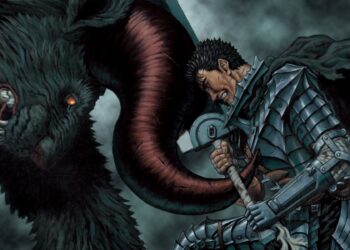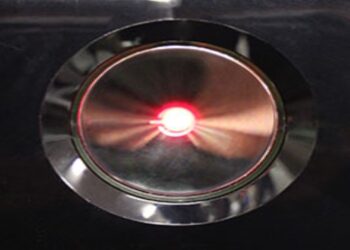Unpacking “Deku”: More Than Just a Useless Nickname in Japanese
In anime, especially “My Hero Academia,” the name “Deku” is common. It’s linked to the protagonist, Izuku Midoriya. But don’t mistake it for a heroic title. “Deku” actually has a negative meaning. In truth, it’s more of an insult. Let’s explore this word’s deeper meaning.
Decoding Deku: From Insult to Endearment?
“Deku” (デク) serves primarily as an insult. It’s similar to calling someone “useless” or “good-for-nothing.” Ouch, right? Katsuki Bakugo, Izuku’s rival, often uses the term. Remember their explosive arguments? Bakugo uses “Deku” to attack Izuku’s self-worth.
This insult has a twisted connection to Izuku’s name, 出久. Clever? Yes. Bakugo takes Izuku’s name and reshapes it into a cruel jab. It’s akin to calling someone named “Hope” “Hopeless.” The sting lies in the mispronunciation.
The term “Deku” stems from “Dekunobou” (木偶の坊). “Dekunobou” translates to “wooden doll” or “puppet.” Picture a lifeless, clumsy puppet without agency. As an insult, it means someone is not only useless but lacks wit and intelligence. When Bakugo yells “Deku!,” he calls Izuku a brainless block of wood. Charming, right?
Izuku Midoriya: Embracing the “Deku”
Izuku accepts “Deku.” His full name is 緑谷出久, or Midoriya Izuku (surname first). Understanding this context sheds light on the nickname. It’s like reclaiming an insult as a badge of honor. Izuku takes back a negative label and redefines it. This reflects his growth.
Deku’s Entanglements: Love, Rivalry, and Obsession
“Deku” also plays a role in Izuku’s relationships. Relationships in anime are complex, especially with superpowers and heroic battles.
Ochaco Uraraka: The Gravity of Affection
Ochaco Uraraka is Izuku’s classmate who can manipulate gravity. She adds depth to Izuku’s life. Signs hint that Izuku has a crush on her, and her feelings seem mutual. Their romance unfolds amid battles. It’s quite the story.
Fans notice Izuku’s blushing moments near Ochaco. He smiles and stumbles over words when she’s around. This is a running joke. One moment he’s fighting villains; the next, he’s a flustered mess. These moments show his romantic interest, even if he won’t admit it.
Ochaco is not immune to the “Deku charm.” She grapples with her feelings for him. Her emotions go beyond admiration for his heroics. She grows more open about her feelings, becoming a major element of their relationship development.
The fandom loves the “IzuOcha” pairing. It’s a self-sailing ship in “My Hero Academia.” Their dynamic is based on mutual respect, admiration, and support. Ochaco appreciates Izuku’s determination. He inspires her own journey, creating a solid partnership.
They support each other during challenges. Their bond strengthens them. This encouragement fosters emotional resilience in Izuku and helps Ochaco find her strength. Their relationship showcases the true power of friendship and potential love.
Don’t forget Eri, the small girl they rescued. Eri calls Ochaco “Mama,” adding warmth to their dynamic. While not romantic, it fuels the “IzuOcha” ship even further. It feels like fate is nudging them together.
Bakugo: From Bully to…? (Fan Theories Abound)
Katsuki Bakugo, famous for giving Izuku the nickname “Deku,” uses it as an insult. For him, “Deku” highlights Izuku’s weakness and inferiority in a competitive sense.
However, fandom portrays their relationship as complex. Some fans speculate about a possible romantic connection between them. Think about it: “Kacchan” and “Deku” as a couple. These theories illustrate how even rivals can have multifaceted connections.
Himiko Toga: A Twisted Obsession
Now on to Himiko Toga. Her feelings for Izuku are dark and obsessive. Toga’s fascination with him is unsettling and villainous. This infatuation shows the darker dimensions of attraction and complicates Izuku’s relationships further.
Name Meanings: More Than Just Labels
Bakugo Katsuki (爆豪 勝己): The Explosive Ego
Bakugo’s surname, Bakugo (爆豪), translates to “explosion,” cautioning about his temper and abilities. The characters 爆 (baku) mean explosion, and 豪 (go) signifies strength. His given name, Katsuki (勝己), suggests “victory for oneself.” It’s a fitting title for his personality.
Uraraka Ochaco (麗日 お茶子): Beautiful Day, Tea Child
Her surname, Uraraka (麗日), means “beautiful/lovely day.” The kanji 麗 (ura) denotes beauty, and 日 (raka/hi) means day. This name evokes warmth, reflecting her persona and positivity.
given name, Ochaco (お茶子), is quite charming. It blends お茶 (ocha) meaning “tea” and 子 (ko) meaning “child.” “Tea child.” It’s sweet. It hints at her comforting nature.
Todoroki Shoto (轟 焦凍): Thunderous Burn and Freeze
Todoroki’s surname, Todoroki (轟), is powerful. It can mean “thunderously loud” or “to be famous.” His father Endeavor’s pursuit of Number 1 adds weight. His given name, Shoto (焦凍), refers to his dual Quirk. The kanji 焦 (sho) means “burn,” and 凍 (to) means “freeze.” “Burn and freeze.” A potent descriptor of his abilities.
Aizawa Shota (相澤 消太): Swamp Eraser
Aizawa’s surname, Aizawa (相澤), is down-to-earth. It can translate to “fellow swamp.” The kanji 相 (ai) means “fellow,” and 澤 (sawa) means “swamp.” “Fellow swamp.” Not glamorous, but fitting for his tired demeanor. His name Shota (消太) means “erase” or “extinguish,” aligning perfectly with his Quirk, Erasure.
Dabi (荼毘): Cremation Incarnate
Dabi’s name is chilling. Dabi (荼毘) translates to “cremation.” “Cremation.” It’s a grim name that foreshadows his fiery Quirk and tragic past.
Mina Ashido (芦戸 三奈): Reed Door, Apple Tree Three?
Mina’s name is whimsical. “Mina” (三奈) can mean “three, apple tree,” while “Ashido” (芦戸) translates to “reed, door.” “Three, apple tree, reed, door.” It’s an eclectic mix, tied less to her traits than others. However, the “reed door” suggests flexibility, reflecting her personality.
Tsuyu Asui (蛙吹 梅雨): Plum Rain Frog
Tsuyu’s name, Tsuyu (梅雨), is evocative. It refers to the rainy season, known as “plum rain.” “Plum rain.” It conjures images of gentle rain, fitting for her calm nature. Her surname, Asui (蛙吹), has 蛙 (kaeru – frog) and 吹 (sui – blow). “Frog breathe.” Together, it’s practically “Plum Rain Frog,” encapsulating her Quirk and serene demeanor.
Toru Hagakure (葉隠 透): Hidden Leaf Transparency
Hagakure (葉隠) means “hidden by leaves.” The kanji 葉 (ha) means “leaf,” and 隠 (kure) means “hide.” “Hidden leaves.” This fits a character with invisibility. Her name, Toru (透), means “transparent.” “Hidden leaf transparency.” Perfect synergy.
Shoko Komori (香子 小森): Fragrant Child, Small Forest Brightness?
Shoko’s name, Shoko (香子), can mean “bright,” or “happiness.” “Brightness” fits her cheerful disposition. Her surname, Komori (小森), likely translates to “small forest.” “Small forest fragrant child.” A name evoking gentle nature and radiance.
Japanese Honorifics: -Chan and Senpai Demystified
Let’s explore Japanese honorifics in “My Hero Academia,” specifically “-chan” and “senpai,” popular in anime.
-Chan (ちゃん): The Cuteness Suffix
“-Chan” (ちゃん) is a suffix used as an endearment. It adds a sprinkle of cuteness to someone’s name. It’s for girls, children, friends, and pets. It indicates a close bond. When someone uses “-chan,” they show warmth. It’s like adding “dear” or “sweetie,” but more affectionate.
Senpai (先輩): The Respectful Senior
Senpai (先輩) is an honorific for “senior.” It shows respect to someone older or more experienced. In school settings, younger students use it for older ones. It carries respect and admiration. In romantic contexts, particularly by girls, it hints at deeper feelings. The “senpai-kohai” dynamic is common in anime romance.
Bonus Japanese Terms: Dekiru, Dake, Hakujin, Oni
Let’s define a few Japanese words from discussions about “My Hero Academia” or Japanese culture.
- Dekiru (できる): This verb means “to be able to.” It expresses ability. While “Deku” means useless, “Dekiru” signifies capability. The irony is clear.
- Dake (だけ): This particle means “only.” It indicates a limit. “Dake” emphasizes exclusivity.
- Hakujin (白人): This term means “white person.” It’s neutral and denotes people of European descent. “Hakujin” translates directly.
- Oni (鬼): “Oni” refers to demons in folklore. They are fearsome creatures in culture. “Oni” represent monstrous forces.
So there you have it. “Deku” is more than a nickname. It’s an insult rooted in “useless,” ironically embraced by a hero. It intertwines relationships and is part of the linguistic tapestry of “My Hero Academia.” Go impress your anime friends with your newfound expertise. Just don’t call anyone “Deku” in real life unless you want a Bakugo reaction.










